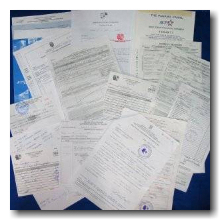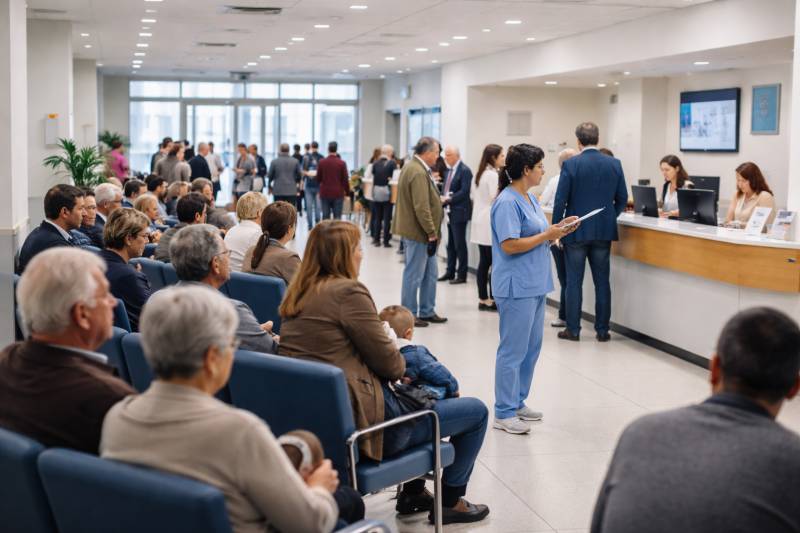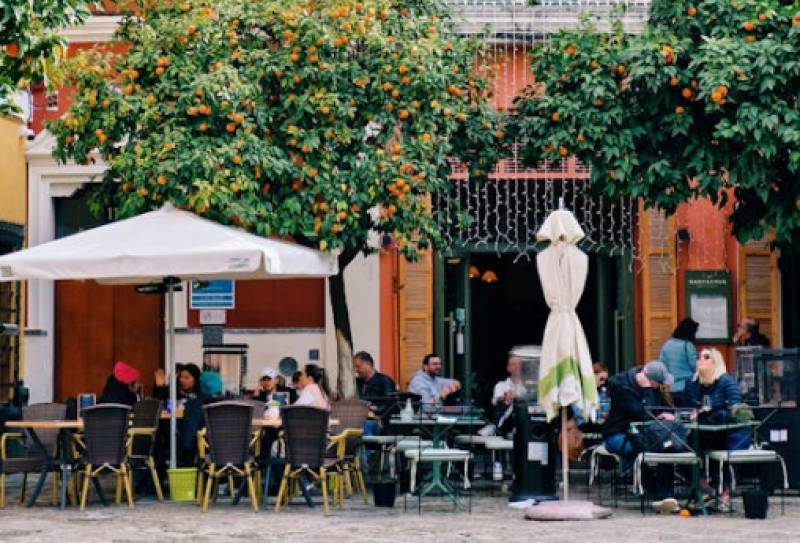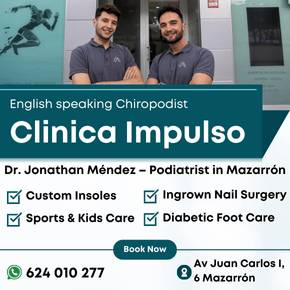
To be listed on the haciendadelalamo TODAY MAP please call +34 968 018 268.
Where to go for HELP in Spain
 I need some help. Where can I go to find it here in Spain?
I need some help. Where can I go to find it here in Spain?
You are not alone. There are many places that ex-pats can find help.One of the most important ports of call is the British Consulatein Alicante.
Their excellent website gives a lot of information about living in Spain. Read about health, insurance, births, deaths, marriages, healthcare, pensions, allowances, driving and car regulations, pet owning advice, help organisations etc etc.The website can be found on
From this website are many useful links to other govt. departments and organisations that will help with specific difficulties. Other sources of advice are:
Age Concern971 23 15 20
The Royal British legion South902 881 070
www.spainsouth.legionbranches.net
Local assistance can be found through the many voluntary charities, religious organisations and social groups listed in the Simply Social listing of “Things to do and clubs to join.” Here you will find more information about local groups dealing with specific problems.
We have reproduced some excerpts from the ukinspain site below to enable you to see the type of information available.
UKbenefits
Some UKbenefits are payable in Spain. However, certain benefits are not payable if you move to Spain(e.g. Income support, Pension credit, Housing benefit and Council Tax benefit, Disability living allowance mobility component). Other benefits are exportable in certain circumstances (e.g. Incapacity Benefit, contribution-based Jobseekers allowance, Attendance allowance, Disability living allowance care component).
If you are concerned how moving abroad will affect your benefits you should contact the International Pension Service (IPC) or visit the International Pension Service website. You can find out more about your UKbenefit entitlements by visiting the Jobcentre Plus website.
The International Pension Centre (IPC) deals with claims to State Pension, Bereavement Benefits, benefits for Industrial Injuries and diseases, contribution-based Jobseekers Allowance, Maternity Allowance and Incapacity Benefit for people living outside the UK and those living in the UK who have lived or worked in other countries that apply the European Community (EC) rules on social securityor in a country that has a Reciprocal Social Security Agreement with the UK
IPC also deals with Employment and Support Allowance (ESA) for people living outside the UKand those living in the UKwho have lived or worked in other countries that apply the European Community (EC) rules on Social Security.
If you get one of these benefits and live in another country that applies the EC rules on social security, we may also issue a form to cover you and your family for health care at UKexpense.We have more than a million customers in over two hundred countries around the world.
Deaths involving British Nationals
The death of a relative or friend is always distressing. But if it happens abroad the distress can be made worse by practical problems. Consular Directorate in the Foreign and Commonwealth Office and our Consulates in Spainare ready to help in any way that they can. You may be uncertain what to do next or who to contact for advice. These notes are designed to help you through the practical arrangements you will need to make. While care has been taken in compiling these notes, no legal liability for their contents is accepted by the British Embassy, British Consulates General in Spainor HM Government.
You should be aware that Spanish procedures differ significantly to those in the United Kingdom. While we understand your need to make arrangements as quickly as possible, this may not always be possible.
Standard Procedures
Except in remote rural areas, Spanish undertakers are modern, well-equipped companies used to working with foreigners. Most have at least one English-speaking staff member.
Following the death of a British national in Spain, their next of kin, or a formally appointed representative, must decide whether to repatriate the deceased to the UK, or carry out a local burial or cremation. If the deceased was covered by travel insurance, it is important for next of kin to contact the insurance company without delay. If there is no insurance cover, the cost of repatriation or burial will need to be met by the family. Neither the Foreign and Commonwealth Office nor our Consulates in Spainhave budgets to meet these costs.
Consular staff in Londonwill pass on to the Consulate in Spainthe wishes of the next of kin about disposal of the body, and details of who is taking responsibility for the costs involved. We will do our best to ensure these wishes are carried out.
Under a strict interpretation of Spanish law, a deceased person must be buried within 72 hours of death. However, in the case of foreign nationals the authorities will normally allow as much time as necessary, although this should not be longer than a few days. It is important to remember that if the deceased was travelling with a tour operator, they can be a valuable source of assistance and advice.
Repatriation
If the deceased was covered by travel insurance, the insurance company will normally have a standing agreement with an International funeral director in Britainto arrange repatriations. If the deceased is not covered by insurance, next of kin will need to appoint an undertaker in Spainor an International funeral director themselves. A list of British companies is at the end of this page. Spanish undertakers have links with international undertakers in the UKand they normally work well together to ensure that all necessary requirements are met in Spainand in the UK.
Local Undertakers in Spainare equipped to carry out repatriation procedures and will provide the special caskets required for the international carriage of human remains. A local civil registry death certificate, plus the doctors death certificate (indicating cause of death), a certificate of embalming, and a certificate giving permission to transfer the remains to the UK is required to ship the body. This will be arranged by the Spanish Undertaker. Our Consulates can provide covering certificates for British Customs. Local formalities for repatriation normally take 8 to 10 days to complete.
In certain circumstances repatriation may not always be possible. Our consular staff will try and inform next of kin as soon as possible if this is the case.
Local Burial
If next of kin choose to proceed with a local burial, they will need to instruct a local funeral director. Our Consulates in Spaincan provide a list of funeral directors on request, including indications of costs, and can help with practical arrangements. Please note that in Spainburial often means an above ground crypt. Rights to this are normally held for only 5 years, unless specifically purchased in perpetuity.
Local Cremation
Cremation is now widely accepted in Spainand, except in rural areas, there are modern, well equipped, crematoria. If next of kin choose local cremation and wish to take the ashes back to the UKthemselves, they can do so with minimal bureaucracy. If this is not possible, local undertakers will be able to arrange the necessary paperwork and transportation. There are no restrictions on movement of ashes within the EU. Airline regulations stipulate that ashes must be placed in luggage for the hold or sent as cargo and cannot be transported as hand luggage.
Inquests
If the circumstances of the death were not unusual (see below), registration of the death is permitted and the body will be released for repatriation or burial within a few hours. However, if an Examining Magistrate is not satisfied after a preliminary examination of the facts, an autopsy may be required. Further investigations and interviews with witnesses may also be called for before a decision is made as to cause of death.
In cases of sudden or unexpected death, whether by accident or misadventure, or where a person dies unattended, the Examining Magistrate will prepare a report of his findings and the body will be released for burial. The Magistrates report will be retained by the Court and may only be released to the legal representative (a local lawyer) of the next of kin. However, if death was caused by a criminal act, the police will be ordered to conduct a full investigation. The State Prosecutor will then decide whether to prosecute. This can delay the release of the body for burial.
Autopsies/Removal of Organs
Autopsies are carried out by court appointed forensic doctors. During an autopsy, organs can be removed for testing, including toxicological studies, at the discretion of the doctor, without consent of next of kin. Next of kin are not informed about the removal of any organs. The deceased’s body can be buried or cremated in Spainor returned to the UKbefore tests on removed organs are completed. Any organs removed are retained for the duration of the tests, and are then put in storage for at least one month before being destroyed. Organs cannot be removed for any purpose other than testing without prior consent of the deceased (for research) or next of kin (transplants).
Next of kin can seek a court order requiring the eventual return of these organs. If the deceased’s body has been repatriated, next of kin should contact their local coroner in the UKin order to request the return of any organs removed.
Organ Donation
Each comunidad has a regional office and there is a also a national office in Madrid. Each regional office and the national office are able to issue organ donor cards. Even if a person carries a card or has expressed a desire for his organs to be donated, under Spanish law the NOK have to give permission to the Hospital authorities. Without the authority of the NOK, organs cannot be donated (Ley de Transplantes).
Oficina Coordinadora de Transplantes de la Comunidad de Madrid
Plaza Carlos Trías Bertrán, 7
28020 Madrid(In the Azca Building "Moda Shopping" in Nuevos Ministerios)
Tel: (+34) 91 426 5911
Organización Nacional de Transplantes Madrid
Tel: (+34) 91 314 2406
UKCoroners
When a body is repatriated to Englandor Wales, a coroner will hold an inquest only if the death was violent or unnatural, or if the death was sudden and the cause unknown. In some countries the cause of death is not given on the death certificate, and coroners do not generally have access to judicial files from other countries. Consequently coroners may order a post-mortem as part of the inquest.
Coroners can request copies of post-mortem and police reports from the Spanish authorities. However, these will only be provided once any judicial proceedings are completed. In some instances this can take many months.
In Scotland, the Crown Office and Procurator Fiscal Service (COPFS) deals with the investigation of all sudden, suspicious, accidental, unexpected and unexplained deaths which occur in Scotland. However, the COPFS does not have the jurisdiction to investigate deaths that occur outside Scotlandapart from a few limited circumstances. Broadly, those circumstances include terrorism, cases where the death may been caused in Scotland but the person died outside Scotland and cases where where the death was as a result of murder or culpable homicide caused by another British citizen or subject.
Coroners in Northern Irelandare not obliged to hold an inquest into cause of death. However, next of kin can apply for a judicial review if no inquest is held.
Release of Information
Access to information concerning a death, other than post-mortem and police reports, is restricted. The Spanish authorities will not provide this information directly to next of kin, or to third parties including our Consulates. Requests for this information should be made through a legal representative. Our consular staff can provide lists of English speaking lawyers throughout Spain. The release of any information can take many months, and the documents will be in Spanish.
Legal Aid
British nationals without the available means to appoint legal representation can apply for legal aid in most European countries. The Legal Services Commissionin London(tel: +44 (0) 207 759 0000) is responsible for legal aid applications overseas. The Legal Services Commission currently forwards applications for legal aid to their counterparts in Spain, where cases will be considered for their eligibility (based on Spain’s criteria).
Consular Death Registration
There is no obligation for the death overseas of a British national to be registered with the British Embassy. However, there are the advantages that a British form of death certificate is then available, and that a record of the death is afterwards held at the General Register Office in the UK. To apply from within the UK, you should contact Nationality and Passports Section of Consular Directorate, OldAdmiraltyBuilding, London SW1A 2AF Tel: +44 (0) 207 008 0186. If you are applying from Spain, please visit the death registrationpage on our website.
Foreign and Commonwealth Office, LondonSpainDesk, Consular Directorate
Tel: +44 (0) 207 008 0148/0189/0178/0174
International Funeral Directors
Co-Operative Funeral Services
119 Paisley Road
Glasgow G5 8RL
Tel: +44 (0) 141 308 6217
Fax: +44 (0) 141 429 4169
Email: glasgow.paisley@letsco-operate.com
Kenyon Christopher Henley
81 Westbourne Grove
LondonW2 4UL
Tel: +44 (0) 20 7313 6920


















































